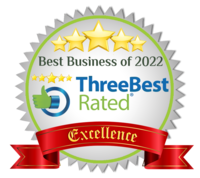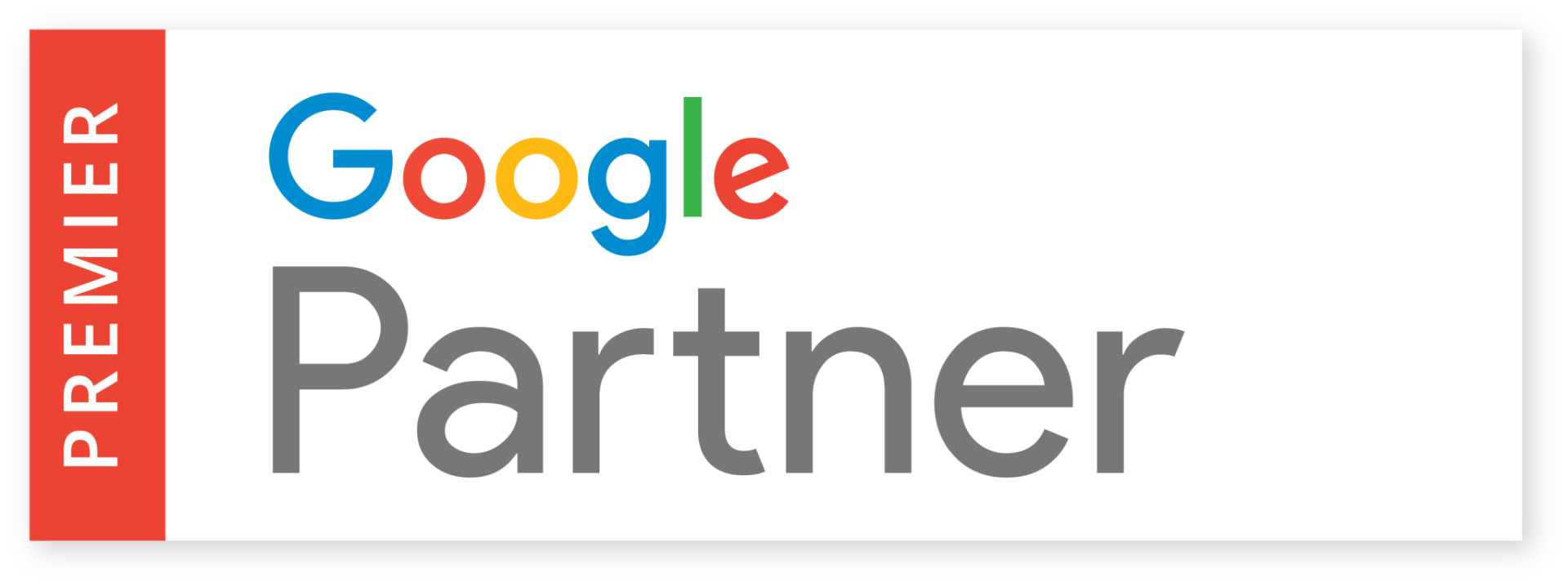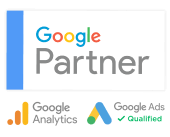Choosing the Right Social Media Platforms for Your Rhode Island Business
Understanding Your Business Objectives for Social Media

Before diving into the world of social media marketing, it’s crucial to have a clear understanding of your business objectives. Social media platforms offer diverse ways to engage with existing and potential customers, but aligning these platforms with your business goals ensures that your strategy is effective. Knowing what you aim to achieve will guide your platform selection process and inform your overall marketing strategies.
Defining Your Goals for Social Media
Your first step is to define what you want to achieve with your social media presence. Are you looking to increase brand awareness, drive website traffic, generate leads, or engage with your existing community? By setting clear business objectives, you can measure the success of your campaigns and make adjustments as needed. Understanding your goals helps you focus your efforts on platforms and strategies that support those outcomes.
Analyzing Social Media Usage Among Your Target Audiences
Each social media platform attracts different types of users, and understanding how your target audiences engage with social media is key to selecting the right platforms. Research the social media habits of both your existing and potential customers. For example, platforms like Facebook may be more effective for reaching a broad demographic, while Instagram and TikTok might work better for engaging younger audiences with visually driven content.
Aligning Platforms with Business Processes
Social media should be integrated with your overall business processes, from customer service to sales. By considering your business objectives and the way your team operates, you can select platforms that facilitate seamless communication and workflows. For instance, LinkedIn might be ideal for B2B companies, while platforms like Facebook and Instagram may better suit those focused on consumer-facing interactions.
Targeting Existing and Potential Customers
One of the key advantages of social media marketing is the ability to directly connect with both existing and potential customers. Understanding how your target audiences use social media can help you craft messages that resonate and drive engagement. If your goal is to nurture long-term relationships with existing customers, platforms like Facebook or email marketing channels might be most effective. Alternatively, platforms like Instagram, Twitter, or LinkedIn could help you attract new customers.
Customizing Marketing Strategies for Each Platform
Each social media platform has its unique features, audience, and content style. Customizing your marketing strategies for each platform is vital to achieving the best results. For example, Instagram is highly visual, making it ideal for product-focused content, while Twitter is best for short, real-time updates. By tailoring your approach, you can optimize your content for each platform’s strengths, driving better engagement and more meaningful connections.
Evaluating the Platform Selection Process
The platform selection process involves understanding your business objectives, target audiences, and available resources. Whether you’re aiming to build brand awareness, foster customer loyalty, or drive sales, choosing the right platforms ensures that your social media marketing efforts align with your business goals. Regularly review your performance to see if your selected platforms are delivering the desired results, and be prepared to adjust your strategy as trends and audience behaviors evolve.
Understanding your business objectives for social media is essential for selecting the right platforms and creating a targeted, effective strategy. By aligning your goals with the behaviors and preferences of your target audiences, you can enhance your marketing efforts and achieve tangible business results.
Identifying Your Target Audiences on Social Media

To create a successful marketing campaign on social media, understanding your target audience is crucial. Knowing who you want to engage with helps you tailor your content and approach, ensuring that it resonates with the right people. By leveraging customer data, market research, and insights into consumer behavior, you can develop a deep understanding of your audience, build personal connections, and create engaging content that drives results.
Understanding the Importance of Audience Identification
Identifying your target audiences on social media allows you to create more relevant and effective content. Without a clear understanding of who your audience is, your efforts can be scattered, making it difficult to measure success. By narrowing down your target audience, you can focus on crafting messages that speak directly to their needs, preferences, and behaviors, increasing engagement and boosting key performance indicators (KPIs) such as clicks, conversions, and shares.
Analyzing Customer Data and Consumer Behavior
Customer data is an invaluable resource when it comes to identifying your target audience. By analyzing this data, you can uncover insights into your audience’s age, location, interests, and purchasing behavior. Studying consumer behavior on social networks helps you understand how your audience interacts with content, what types of posts they engage with, and which platforms they frequent most. This allows you to tailor your social media strategy to match their preferences.
Conducting Market Research for Audience Insights
Market research provides a broader view of the landscape by identifying trends and shifts in consumer behavior. By analyzing both your existing customer base and potential new customers, you can spot patterns in demographics, interests, and online activities. This research helps you segment your audience, which can guide the creation of content that appeals to each specific group.
Exploring Different Platforms to Reach Diverse Audiences
Each social network has its unique demographic and content style. Understanding the characteristics of different platforms helps you target the right audience more effectively. For example, LinkedIn might be ideal for B2B marketing, while Instagram and TikTok are better suited for visually driven, lifestyle-focused content aimed at younger consumers. Tailor your content and approach to each platform to ensure you’re reaching your desired audience.
Creating Engaging Content for Your Target Audience
Once you’ve identified your target audience, the next step is to create engaging content that resonates with them. Whether it’s videos, blog posts, or infographics, your content should reflect the interests, pain points, and desires of your audience. Engaging content is more likely to foster interaction, build relationships, and drive action, whether that means sharing your post, clicking through to your website, or making a purchase.
Building a Personal Connection with Your Audience
Social media offers a unique opportunity to form a personal connection with your audience. By engaging directly with your followers, responding to comments, and sharing authentic content, you humanize your brand and build trust. This personal connection can significantly increase loyalty and drive long-term customer relationships.
Implementing Ongoing Maintenance and Audience Review
Identifying your target audience is not a one-time task. As trends, interests, and consumer behaviors evolve, ongoing maintenance is necessary to ensure that your content remains relevant. Regularly review audience data and market research to keep your approach fresh. Continuously refine your content and strategy based on feedback and changes in your audience’s preferences.
Measuring Success with Key Performance Indicators
To evaluate the effectiveness of your targeting, use key performance indicators (KPIs) like engagement rates, click-through rates, and conversion rates. These metrics provide valuable insights into how well your content resonates with your audience and help you adjust your strategy accordingly.
Identifying and understanding your target audience is essential for creating a successful social media marketing campaign. By leveraging customer data, conducting market research, and continuously refining your strategy, you can connect with the right people, foster engagement, and ultimately drive business success.
The Importance of Aligning Platforms with Your Brand

Aligning the right social media platforms with your brand ensures that your marketing efforts resonate with your audience and effectively represent your company’s products, values, and messaging. By selecting platforms that align with your brand’s goals, you not only maximize the potential reach but also foster stronger connections with your customers and stakeholders.
Choosing the Right Platforms for Your Brand Identity
Different social media platforms cater to different types of content and audiences. The key to success is identifying which platforms best represent your company’s identity and align with your brand’s voice. For example, if your company’s products are visually driven, platforms like Instagram or Pinterest may be ideal, whereas LinkedIn might be more suitable for B2B companies or those with a professional focus. By choosing the right platforms, you make sure that your content resonates and reaches the intended audience.
Representing Your Company’s Products Effectively
Your social media platforms should reflect the nature of your company’s products. If you offer visually appealing products, platforms that focus on visual content like Instagram, YouTube, or TikTok can engagingly showcase them. If your products are more service-oriented, platforms like LinkedIn or Twitter might allow for more detailed, professional discussions. Aligning your platforms with your product offerings enhances the effectiveness of your marketing efforts.
Maximizing Earned Media Through Strategic Platform Alignment
Earned media refers to publicity gained through word-of-mouth, shares, or mentions on social media platforms. Aligning your brand with platforms that suit your audience’s preferences increases the chances of earned media. When your content is shared or mentioned organically, it amplifies your reach and credibility without additional cost. Choosing platforms that engage your target audience increases the likelihood of earned media and brand advocacy.
Engaging Other Stakeholders Through Proper Platform Selection
Not only do you need to engage your audience, but aligning your platforms with your brand also helps you engage other stakeholders, such as business partners, investors, or influencers. For instance, platforms like LinkedIn are ideal for professional networking, while Twitter or Facebook can be better for engaging customers and the wider community. By understanding which platforms resonate with different groups, you can enhance collaboration and create opportunities for mutually beneficial partnerships.
Cost-Effective Marketing by Aligning with the Right Platforms
Choosing the right platforms can make your marketing efforts more cost-effective. By targeting the platforms that align with your brand’s objectives and audience, you can avoid wasting resources on platforms that don’t deliver a high return on investment (ROI). Focusing on platforms with the right audience ensures you maximize your budget and efforts, achieving better results for less spend.
Measuring Response Rate for Optimal Engagement
One of the key metrics for evaluating your brand’s alignment with a platform is the response rate. A high response rate means that your audience is engaging with your content and taking the desired actions, whether it's liking, commenting, sharing, or making a purchase. By analyzing these metrics, you can fine-tune your platform strategy to ensure that your brand is resonating with your target market.
Driving Desired Actions Through Platform Alignment
When your brand’s voice aligns with the right platform, it becomes easier to guide your audience toward taking the desired action, such as purchasing a product, signing up for a service, or following your page. Social media platforms offer tools to track how well your content is driving these actions, allowing you to refine your approach and ensure you’re achieving your goals.
Aligning your social media platforms with your brand is essential for effective marketing. By choosing platforms that resonate with your target audience, represent your company’s products, and engage other stakeholders, you can achieve cost-effective results that drive desired actions and enhance your brand’s presence online.
Evaluating the Popularity of Social Media Platforms in Rhode Island

Understanding the popularity of social media platforms in Rhode Island is critical for businesses looking to reach local audiences. By evaluating how these platforms are used in the state, marketers can determine the most effective channels for sharing content and engaging with potential customers. Analyzing trends over time can provide valuable insights into the development and benefits of each platform, allowing businesses to make informed decisions about their marketing strategies.
Analyzing Social Media Trends Over Time
Social media trends evolve, and what works today might not be as effective tomorrow. By reviewing the popularity of platforms in Rhode Island over a specific period, businesses can gauge where local audiences are spending their time online. For example, platforms like Facebook and Instagram have seen changes in usage patterns, and understanding these shifts helps marketers identify where to focus their efforts.
Determining the Most Popular Platforms in Rhode Island
The first step in evaluating the popularity of social media platforms in Rhode Island is to determine which platforms are most commonly used by local consumers. Researching demographic data, engagement rates, and market trends specific to Rhode Island gives marketers a clearer picture of which platforms attract the largest or most relevant audiences. Facebook, Instagram, LinkedIn, and Twitter are among the most widely used, but emerging platforms like TikTok may also be gaining traction depending on the target demographic.
Benefits of Using the Right Platform for Your Industry
The popularity of social media platforms varies across industries. For example, businesses in the food and beverage industry may find platforms like Instagram and Facebook more effective for showcasing visually appealing content, while those in professional services or real estate may see better results from LinkedIn or Twitter. Evaluating the benefits of each platform for your specific industry is critical to ensuring that your content reaches the right people and drives the desired results.
Evaluating Platform Development and New Features
Social media platforms are constantly evolving, with new features and tools being introduced regularly. Keeping track of these developments is essential for marketers. For example, new features like Instagram Shopping or LinkedIn’s advanced targeting options can provide opportunities to enhance marketing campaigns. Staying updated on platform changes allows businesses to adapt their strategies and take advantage of new opportunities to engage Rhode Island audiences.
The Role of Social Media Usage in Local Marketing Strategies
Understanding how social media is used locally helps businesses develop more targeted and effective marketing strategies. Platforms like Facebook and Instagram are popular in Rhode Island, but different segments of the population may engage with these platforms in different ways. Evaluating local social media usage allows marketers to create content that resonates with Rhode Island’s unique audience, whether that involves hyper-local targeting, community engagement, or showcasing regional products and services.
Using Social Media to Share Content Effectively
Once you’ve determined the most popular platforms in Rhode Island, sharing content effectively becomes the next step. Each platform offers different methods for content sharing, such as posts, stories, videos, or live streams. Understanding the preferences of local audiences helps you determine the best ways to deliver content that captures attention and drives engagement. Whether you’re promoting a local event, sharing a blog post, or showcasing products, aligning your content strategy with the platforms’ strengths is essential for success.
Adapting to Changes in Social Media Popularity
Social media is dynamic, and the popularity of platforms can shift over time. Regularly assessing the current landscape in Rhode Island and staying agile in your approach will allow you to quickly adapt to changes. If a new platform gains popularity, it’s essential to evaluate whether it aligns with your business objectives and audience. Staying informed about trends will help marketers stay ahead of the curve and continuously optimize their social media marketing strategies.
Evaluating the popularity of social media platforms in Rhode Island is a crucial step in ensuring that your marketing efforts are effective. By staying informed about local trends, understanding platform benefits, and adapting to changes in usage patterns, businesses can make strategic decisions that maximize their social media presence and connect with the right audiences.
Choosing Platforms Based on Customer Demographics

Selecting the right social media platforms based on customer demographics is essential for reaching the right audience and achieving your business goals. By understanding the age, interests, and behaviors of your target audiences, you can focus your marketing efforts on the platforms where they are most active. This strategic approach helps increase brand awareness, drive website traffic, and ultimately convert potential consumers into loyal customers.
Identifying the Demographics of Your Target Audience
The first step in choosing platforms based on customer demographics is identifying the key characteristics of your target audience. Are they primarily young adults, middle-aged professionals, or seniors? What are their interests and pain points? Understanding these factors helps you determine which platforms are most likely to engage your audience. For example, younger audiences may gravitate toward platforms like TikTok or Instagram, while older demographics may be more active on Facebook.
Understanding the Platform Demographics for Effective Targeting
Each social network attracts different demographics. By analyzing the demographic breakdown of each platform, you can tailor your marketing strategy to engage your target audiences more effectively. For instance, LinkedIn is known for its professional user base, making it ideal for B2B marketing, while platforms like Instagram and Pinterest cater to more visually driven content and appeal to creative industries and lifestyle brands. Understanding these demographic nuances allows you to focus your efforts on where they will be most impactful.
Aligning Your Marketing Goals with Platform Demographics
To achieve objectives like increasing brand awareness or driving website traffic, it’s crucial to align your goals with the demographics of the platforms you choose. For example, if your goal is to reach younger consumers and increase engagement, platforms like TikTok and Instagram are ideal for creative, short-form content. Alternatively, if your goal is to generate leads or showcase your business's professional services, LinkedIn might be a more effective platform. Matching your marketing goals with the platform’s user base ensures you are targeting the right audience in the right way.
Addressing Customer Pain Points Through the Right Platforms
Understanding your audience’s pain points is key to choosing platforms where you can address their needs directly. For example, if your target audience is looking for inspiration, Pinterest and Instagram may be the best platforms to showcase visually appealing products or ideas. If your customers are looking for solutions to professional challenges, LinkedIn might be more suitable for sharing case studies, industry insights, and thought leadership. Choosing the right platform allows you to position your content in a way that resonates with your audience’s needs.
Expanding Reach by Focusing on the Right Social Networks
Focusing on the right social networks helps expand your reach and increases the chances of engaging with your target audience. While it might be tempting to spread your efforts across multiple platforms, concentrating on those with the highest potential for your customer demographics ensures that your resources are being used efficiently. This strategic approach also enables you to deliver a more personalized experience for your potential consumers, fostering deeper connections and higher engagement.
Utilizing Platform Features to Meet Demographic Preferences
Once you've identified the platforms that align with your customer demographics, it’s important to leverage the unique features each platform offers. For example, Instagram Stories and Facebook Live allow for real-time, interactive content, which may appeal to an audience seeking more authentic and engaging experiences. Platforms like YouTube and TikTok support video-based content, which resonates with younger users who consume visual media. Tailoring your content to match the platform’s features enhances engagement and helps meet your audience’s preferences.
Tracking Metrics to Refine Your Strategy
After selecting platforms based on customer demographics, it’s essential to track key metrics to evaluate the effectiveness of your strategy. Monitor engagement rates, website traffic, and conversion rates to assess how well your content resonates with your target audience. Regularly reviewing these metrics will allow you to refine your approach and adjust your platform strategy based on real-time feedback.
Choosing the right platforms based on customer demographics is critical to maximizing the impact of your social media marketing efforts. By understanding your target audiences and aligning your strategy with the platforms that best serve their needs, you can increase brand awareness, drive website traffic, and effectively address customer pain points.
Ready to Take Your Digital Marketing to the Next Level?
At LevelUP Digital, we are passionate about empowering businesses with innovative tools, honest expertise, and accessible digital marketing solutions. Whether you want to enhance your online presence or streamline your marketing strategy, our mission is to help you succeed in today’s competitive market.
Contact us today to discover how we can simplify digital marketing for your business and provide the education, services, and support you need to grow. Together, we can achieve your goals and take the complexity out of your digital journey.
Let’s LevelUP Your Business – Reach Out Now!



















